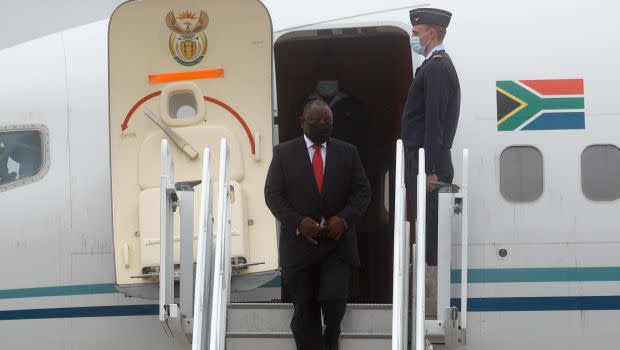South Africa’s vaccine rollout has hit yet another roadblock

South Africa has suffered the latest in a series of setbacks to its Covid-19 vaccination program, with the country’s medical-products regulator saying on Sunday that doses of the Johnson & Johnson vaccine that were manufactured at a plant in Baltimore, Maryland and awaiting distribution in South Africa cannot be used because of possible contamination.
The decision by the South African Health Products Regulatory Authority (SAHPRA) could render two million doses of the J&J jab being held at a finishing plant in South Africa’s Eastern Cape province unavailable for use in the country. The move follows a determination by the US Food and Drug Administration that as many as 60 million doses of J&J vaccine manufactured at the plant are unsuitable for use because of contamination.
“SAHPRA reviewed the data provided by the FDA and has made a decision not to release vaccine produced using the drug substance batches that were not suitable,” the regulator said in a statement. As part of its process, SAPHRA requires documentation of the quality of vaccines from the regulatory authority in the country where a vaccine is manufactured; in this instance, the FDA.
Unavailability of the J&J doses—the first of 31 million doses of the jab that South Africa has agreed to purchase—looks likely to set back the country’s ability to achieve its goal of vaccinating the nation’s 40 million adults between now and the end of the year, and comes as a third wave of the pandemic bears down on the country.
South Africa is working its way through the second phase of a vaccine rollout that currently prioritizes health-care workers and people over aged 60. About 1.6 million South Africans have received a jab so far, with just under a third fully vaccinated.
Though South Africa anticipates receiving 300,000 doses of the J&J shot derived from two batches cleared by the FDA, the unsuitability of millions of other such shots could force South Africa to await doses that J&J manufactures elsewhere. It also means the country’s vaccination program would continue to rely mainly for now on the first of roughly 31 million doses of the Pfizer-BioNTech vaccine that it has purchased for delivery this year.
The problems with the J&J vaccine particularly hamper the program’s rollout in rural areas. The J&J shot, which requires one dose and can be stored in normal refrigerators, is better suited for use in such areas than the Pfizer vaccine, which requires two doses and ultracold storage.
The unavailability of the doses highlights the risks to public health of South Africa’s relying so heavily on just two vaccines, say some critics, who charge that delays in the securing of vaccines and a lack of transparency from the government about its procurement efforts have contributed to the country’s predicament.
“South Africa managed to put all its eggs in one basket, and now we’re left facing the third wave almost completely unvaccinated,” says Francois Venter, a professor of medicine at the University of the Witwatersrand.
In March, Venter and five of his colleagues criticized a decision by the government to resell 1 million doses of the AstraZeneca vaccine. Though the vaccine showed no significant protection against mild-to-moderate illness from the so-called Beta variant of the coronavirus that causes most of South Africa’s infections, the group blasted the decision to pass on the shot before determining whether it protected against severe illness.
The unavailability of so many J&J jabs intensifies pressure on the government to purchase vaccines from other manufacturers. President Cyril Ramaphosa said recently that the government is continuing discussions with such manufacturers, including the makers of both Russia’s Sputnik V vaccine and the vaccine made by the Chinese pharmaceutical company Sinovac. The efficacy of either vaccine against the Beta variant remains to be established.
Wherever sourced, shots cannot come soon enough. South Africa logged 9,320 new Covid-19 infections on Saturday, more than twice as many infections as two weeks earlier.
Venter notes that South Africa spends more on health per capita than any other country in Africa. Yet the country trails neighbors Zimbabwe and Botswana, as well as countries like Angola and Morocco, in the share of people vaccinated. “We’re one of the least vaccinated African countries,” he says. “That’s pretty damning.”
Sign up to the Quartz Africa Weekly Brief here for news and analysis on African business, tech, and innovation in your inbox.
Sign up for the Quartz Daily Brief, our free daily newsletter with the world’s most important and interesting news.
More stories from Quartz:
